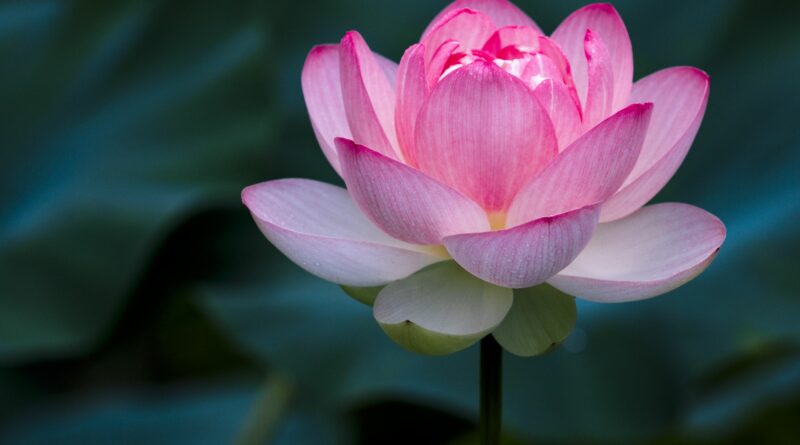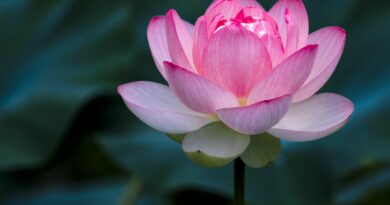71-80
MAIN CONTENT
71-80
71. There’s only one place
Phra Mahā Thaweesuk was the first of Luang Pu’s students to pass the ninth and final level of the Pali exams. Thus, in Luang Pu’s name, Wat Burapha sponsored a celebration of his achievement.
After Phra Mahā Thaweesuk had paid his respects to Luang Pu, Luang Pu gave him a short admonition:
“To be able to pass the ninth level exams shows that you’re very industrious, sufficiently intelligent, and an expert in the Canon, for this counts as the completion of the study course. But to be interested just in study can’t bring release from suffering. You have to be interested in the practice of training the mind as well.
“All 84,000 sections of the Dhamma came out of the Buddha’s mind. Everything comes out of the mind. Whatever you want to know, you can look for it in the mind.”
72. The world vs. the Dhamma
On March 12, 1979, Luang Pu went to Sri Kaew Cave Monastery on Phu Phaan Mountain, Sakon Nakorn province, for more than ten days of solitude and rest. On the evening of the last day before he was to leave, Ajaan Suwat together with the other monks and novices in the monastery came to pay their respects.
Luang Pu commented, “It’s been comfortable resting here. The air is good, and the meditation easy. It makes me think of the old days when I was wandering.”
Then he gave a Dhamma talk, which included the following passage:
“That which can be known all belongs to the world. As for that which has no thing that can know it, that’s the Dhamma. The world always has things that come in pairs, but the Dhamma is one thing all the way through.”
73. Should you ask?
Many people interested in the practice, whether lay or ordained, are not only intent on their practice but also like to search out teachers who are skilled in giving advice.
Once a group of meditating monks from the central region of Thailand came to spend many days listening to Luang Pu’s Dhamma and to his advice on meditation. One of the monks told Luang Pu of his feelings: “I’ve searched out many teachers, and although they all teach well, they generally teach just about the Vinaya, or the practicing of wandering and following the ascetic practices, or else the bliss and stillness that come from practicing concentration. But as for you, you teach the straight route to the top: not-self, emptiness, nibbāna. Forgive me for being so forward as to ask, but in teaching about nibbāna, have you attained it yet?”
Luang Pu answered,
“There’s nothing that will attain, and nothing that won’t attain.”
74. The purpose of the practice
Ajaan Bate, a close relative of Luang Pu’s, lived at Khoke Mawn Monastery. Even though he ordained only late in life, he was extremely strict in his practice of meditation and the ascetic practices. Luang Pu once praised him, saying that his practice had gotten good results. When Ajaan Bate fell seriously ill and was near death, he said that he wanted to see Luang Pu one last time, to bid him farewell before dying. I informed Luang Pu, who went to see him. On his arrival, Ajaan Bate got up and bowed down to him and then lay back on his sleeping mat as before, without saying a word. But his smile and the happy look on his face were easy to see.
Luang Pu said to him in a voice both clear and gentle,
“All the practices you’ve been trying to practice are specifically meant for use at this time. When the time comes to die, make the mind one, then stop focusing and let go of everything.”
75. Hoping for far-off results
When lay people came to visit Luang Pu, he ordinarily wouldn’t ask them about anything far away. He’d usually ask, “Have you ever meditated?” Some would respond that they had, others that they hadn’t.
One woman, a member of the latter group, was more outspoken than the rest. She said, “As I see it, there’s no reason we have to go to all the trouble of meditating. Every year I hear the Mahachaad sermon [a long, poetic chant of the Buddha’s penultimate life, as Prince Vessantara] at least 13 times at many different temples. The monks there say that listening to the Mahachaad story guarantees I’ll be reborn in the time of the Buddha Sri Ariya Metteyya, where I’ll meet with nothing but pleasure and ease. So why should I make things difficult for myself by meditating?”
Luang Pu said,
“Things that are excellent are right in front of your face, and yet you don’t show any interest. Instead, you place your hopes on far-off things that are nothing but rumors. This is the mark of a person who’s hopeless. When the paths, fruitions, and nibbāna of the dispensation of the Buddha Gotama are still with us, totally complete, and yet you dither around and don’t show any interest in them, then when the dispensation of the Buddha Sri Ariya Metteyya comes, you’ll dither around even more.”
76. Nothing more than that
Sometimes, when Luang Pu noticed that the people who came to practice with him were still uncommitted, still pining after the happiness and enjoyment of purely worldly things to the point where they weren’t ready to let them go and practice the Dhamma, he’d give them a teaching to think about so as to see things clearly for what they are:
“I ask you all to examine happiness, to see exactly where was the point of greatest happiness in your life. When you really look at it, you’ll see that it’s just that—nothing more than anything else you’ve ever experienced. Why wasn’t it more than that? Because the world has nothing more than that. That’s all it has to offer—over and over again, nothing more than that at all. Just birth, aging, illness, and death, over and over again. There’s got to be a happiness more extraordinary than that, more excellent than that, safer than that. This is why the noble ones sacrifice limited happiness in search of the happiness that comes from stilling the body, stilling the mind, stilling the defilements. That’s the happiness that’s safe, to which nothing else can compare.”
77. It’s easy if you’re not attached
Wat Burapha, where Luang Pu spent each Rains Retreat without exception for more than 50 years, is situated in the heart of the town of Surin, right in front of the Provincial Offices and next to the provincial court. For this reason, the noise of cars and trucks was constantly disturbing the peace and quiet of the monastery. Especially during the annual Elephant Fair or any of the holidays, there would be noise and bright lights for seven or fifteen days at a time. The monks and novices whose minds still lacked resilience would be especially bothered by this.
Whenever they’d bring this to Luang Pu’s attention, they’d always get the same response:
“Why waste your time being interested in those things? It’s the nature of light to be bright. It’s the nature of noise to be loud. That’s what their functions are. If you don’t focus on listening, that’s the end of the matter. Act in a way that’s not in opposition to your surroundings, for that’s just the way they are. Simply reach a genuine understanding with them using deep discernment, that’s all.”



